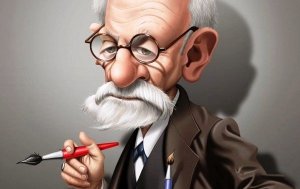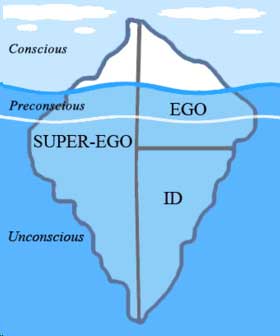Why Was Freud a Revolutionary?

Freud shook the foundations of psychology. He did this by shaping several schools of thought. Many psychiatrists still practice these schools of thought. In this sense, Freud was a revolutionary in his way of seeing humans and our minds.
In this article, we’re not going to focus as much on his contributions. Instead, we’re going to look at why he became a revolutionary. We’ll also see why he’s still a significant figure today. Freud is still a key figure in the history of psychology. You could even say that Freud’s effect on psychology is as significant as Copernicus’s effect on how we see the universe when he discovered the sun was the center of everything and not the Earth. If you agree with us, let’s take a look at this important historical figure!
Freud and the unconscious
The unconscious was his most revolutionary idea. However, today it’s perhaps one of the least discussed topics. In the historical moment that Freud lived in, social psychology hadn’t been developed yet. However, we already knew that we didn’t have complete control over what happened to us. People already knew that certain external variables, such as the amount of sunlight a person got every day, could influence their mood. It’s also true that this same sunlight could blind us or make us stumble. Freud took this concept one step further.
Freud pointed out that inside each of us, there’s a side we can’t access directly or in a conscious way. However, this side does manifest itself in our emotions, thoughts, and behaviors. It’s a kind of genius that acts behind the scenes. It moves the puppet’s strings but doesn’t show its face on stage.
The unconscious is ignored by the conscious mind. This unconscious mind can sometimes take us down some difficult roads. It could make us feel sad without us consciously knowing why or make us have symbolic dreams. It can even cause certain errors in our speech.
Today, there a few people who can deny that we have an unconscious part that influences us. Our conscious mind doesn’t have an easy access to it. The unconscious mind could hold a childhood memory, but it also could hold deteriorated self-esteem or attachment or commitment issues. These issues can make all your relationships fail.

The power of words
People treasured Freud, among his other virtues, for being a magnificent writer. Three adjectives that could be used to describe his work are detailed, clear and elegant. He put a lot of thought into his word choice to express his thoughts masterfully. He also made writing a central part of his therapy.
For example, as we mentioned before, Freud argued that one of the most innocent manifestations of the unconscious is our speech lapses. At the same time, he believed that free association was a way to access uncontaminated unconscious information.
Free association was used as the fundamental method of psychoanalytic technique. Other techniques that had previously been used (e.g. hypnosis) were put second to free association, even though they were originally regarded as very useful for this purpose. The great advantage of free association is that, when it’s done well, it’s free of suggestion and the restrictions of consciousness.
Another look at childhood
Freud believed that childhood is a significant stage in which events that will influence us throughout our lives take place. In addition, this influence will happen primarily through the unconscious. We use models we have internalized but haven’t processed.
Freud also tells us that sexuality also plays an important role in childhood. This idea was very important to him. We see this, for example, in his Oedipus and Electra complexes. However, he spoke of child sexuality as something natural and refrained from entering into any moral debate about it.
For him, this sexuality is very present and can have consequences. In the case of boys, for example, competition with the father for the love of the mother can stimulate them to grow. This can make the boy want to imitate the father and try to overcome him. On the other hand, this idealization of the mother can make the boy find people similar to his mother attractive when it comes to relationships.
One thing you can certainly say about Freud is that he wasn’t afraid to fight to put an end to certain taboos. One of the most important ideas he tackled may have been childhood idealization.
Conflict and neurosis
Another revolutionary idea that Freud dealt with revolved around neurosis. Freud suggested that there are internal conflicts between what we desire (it-instinct) and what we allow ourselves to do (superego-forbidden in terms of culture or society). These things make us collapse into neurosis. This means that neurotic disorders arise from the displacement of the id to the unconscious by the superego in an attempt to drown them out.

Freud’s work is more complete and covers many more aspects than those we have touched on here. However, we consider these the most important concepts. They show us why his work became the starting point of a revolution. Just as we now consider Copernicus a revolutionary, we can also consider Freud one due to the enormous impact he had.
This text is provided for informational purposes only and does not replace consultation with a professional. If in doubt, consult your specialist.








